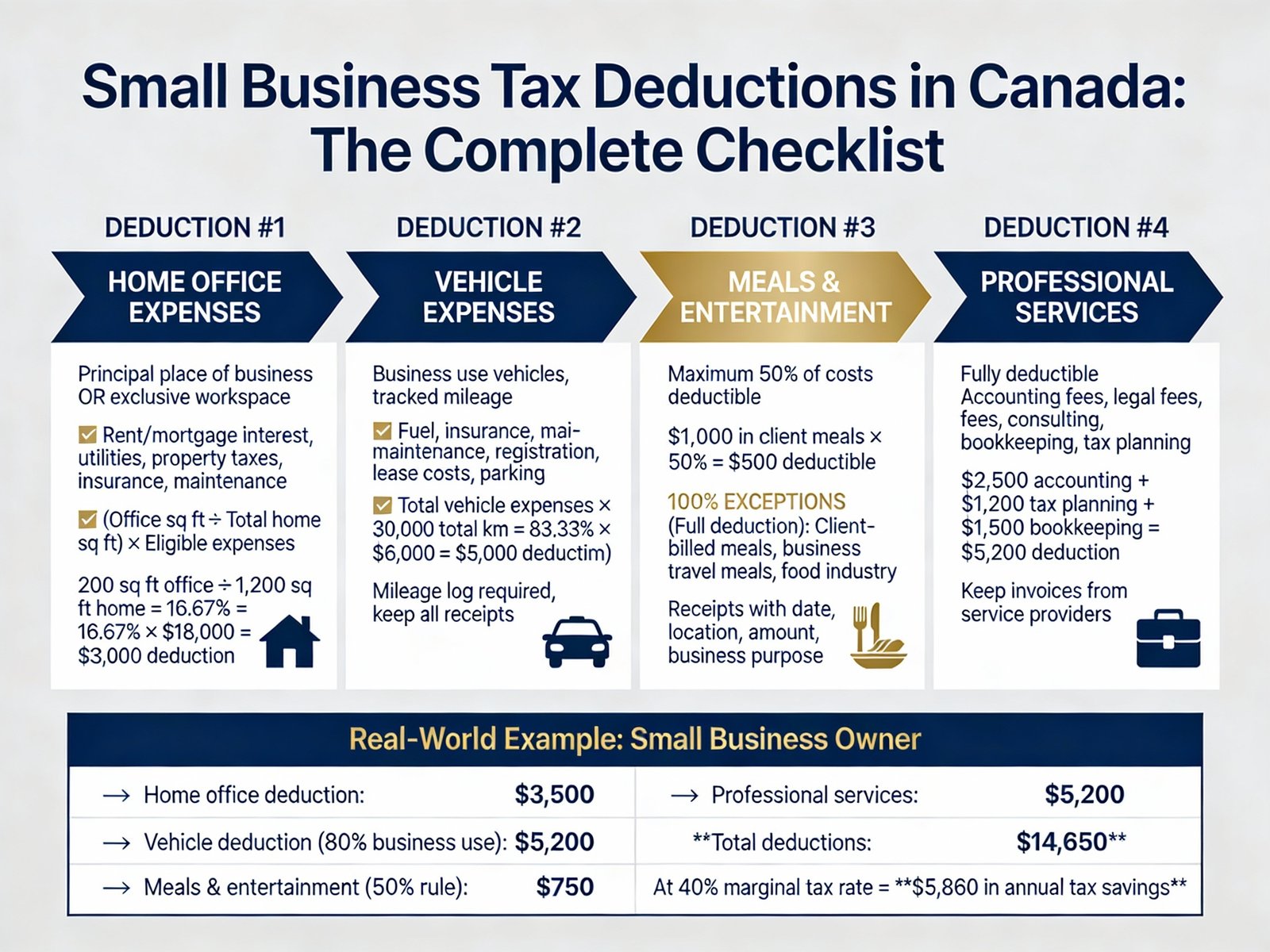
What to Do If You Haven’t Filed Your Taxes in a Few Years (or More) — Canada
Falling behind on tax filing can happen for many reasons—life events, business challenges, lost...
Providing Professional services in Canada.
Corporate taxes are a crucial aspect of operating a business in Canada. In this concise overview, we’ll explore the key elements of corporate taxes and their implications for businesses across the country.
Taxation System: Canada operates under a federal-provincial tax system, with both federal and provincial or territorial governments levying corporate taxes. The combined tax rate is determined based on business location and type.
Taxable Income: To determine taxable income, businesses subtract eligible expenses and deductions from total revenues. This includes operating expenses, salaries, interest payments, and capital costs.
Tax Rates: Corporate tax rates vary by jurisdiction and business type. The federal tax rate applies to taxable income, with additional provincial or territorial rates. Staying updated on tax rate changes ensures accurate calculations.
Tax Filing and Reporting: Annual corporate tax returns must be filed, reporting income and eligible deductions. Generally, taxes are due within six months after the fiscal year ends. Timely, accurate reporting is crucial for compliance and penalty avoidance.
Tax Planning and Strategies: Effective tax planning minimizes tax liabilities within the legal framework. Identifying eligible deductions, tax credits, and incentives, as well as structuring transactions wisely, optimizes tax efficiency. Seek guidance from tax experts for optimal tax planning strategies.
Compliance and Audits: The Canada Revenue Agency (CRA) ensures tax compliance. Businesses may face tax audits or reviews to verify accurate reporting and adherence to tax laws. Maintaining organized financial records supports tax positions and withstands scrutiny.
International Tax Considerations: Businesses engaged in international activities face additional tax considerations, such as transfer pricing rules, foreign tax credits, and tax treaties. Understanding international taxation implications manages tax obligations and avoids double taxation.
Corporate taxes are a significant aspect of doing business in Canada. Understanding the tax system, complying with reporting requirements, and implementing effective tax planning strategies enable businesses to navigate complexities, fulfill tax obligations, and optimize financial positions. Seek professional guidance for accurate and compliant tax management.

Falling behind on tax filing can happen for many reasons—life events, business challenges, lost...

Receiving a Canada Revenue Agency (CRA) Notice of Assessment or Notice of Reassessment can...

Running a successful corporation in Canada involves not only growing your business but also...

Running a business in Canada is about far more than just selling a product...

Filing taxes late in Canada can feel overwhelming, especially when you know you owe...

Tax and accounting in Canada revolve around compliance with the Canada Revenue Agency (CRA)...

Executive Summary For Canadian small business owners and self-employed professionals, understanding tax deductions and...

Executive Summary Canada's cannabis industry operates in a uniquely complex tax environment. While recreational...








